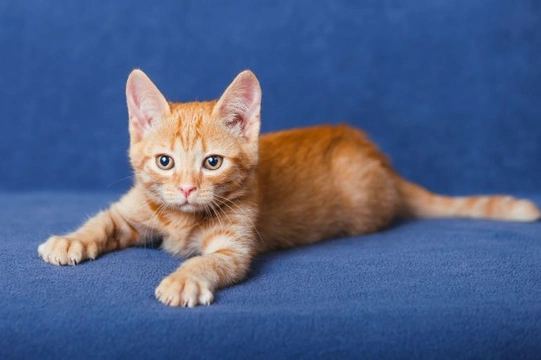
Decoding a Kitten's Behaviour & Their Body Language
All too often a cat owner might well tell their four-legged friends off because they think they've been naughty. However, punishing a kitten or young cat the wrong way can do more harm than good. Cats are incredibly sensitive little creatures and especially so when they are young. Shouting or raised voices can stress them out as can any sort of physical punishment and the end result could be unwanted behavioural problems and in some cases aggression.
There are certain things you should never do when a kitten "gets it wrong" and this includes shouting at them or shaking them. In order to stop a kitten from doing something they should not do, it is far better to show patience and to use a spray bottle filled with water. Other acceptable methods of punishment include clapping your hands together or tapping a work surface to get their attention. Any sort of punishment should never end up frightening them.
A frightened kitten may well grow up to be a very insecure adult cat that lacks the confidence they need to interact with people and other animals. In a worst case scenario, a kitten may well refuse point blankly to even come near you.
The Importance of Understanding a Kitten's Body Language
Cats are very clever creatures and extremely adept at letting owners know what they want and when they want it. They typically do this quite vocally but they also use a lot of body language. A kitten will soon learn how to wrap you around their little paws but it's important to understand what it all means.
Distinctive Meows
A kitten soon develops some very distinctive and unique "meows". These vary quite a lot and range from low-pitched noises to high-pitched demands that usually means they want your attention – which is typically around mealtimes and when they want to be petted. You'll soon learn to recognise what each meow means. Curiously, cats generally reserve their talkative behaviour for people and not other pussy cats!
The Satisfied Sound of Purring
When a kitten purrs it's a sign of their pure contentment. But with this said, new studies have shown that when cats purr it also means they want their owners to stay still so they can be pampered and petted! Animal behaviourists have also come to understand that a cat may even purr when they are unwell or anxious about anything, it's their way of comforting themselves. When a kitten purrs loudly and rubs up against your leg, you can be sure it's a sign of pure love and affection and usually means they want to be fed!
Growling & Hissing – Not Good Sign
A frightened and anxious kitten will hiss and growl. They will generally puff themselves up as well because it makes them look bigger than they really are – it's a cat's instinctive way of protecting themselves. When kittens are young and meet a new animal for the first time, you can expect this type of reaction from them. This is why if they are meeting a dog for the first time, you need to have a firm hand on the dog's collar just in case they retaliate against the little kitten!
Rubbing Up Against You
One thing that happy kittens like to do is rub up against their owners because this way they leave a little bit of their scent behind which basically means they have just claimed their owners as belonging to them! It also shows their love and affection for their owners.
Rolling Over Onto Their Backs
A happy and confident kitten will think nothing of rolling over onto their backs and stretching out their legs. This type of behaviour shows they totally trust you and it's a sign of complete submission. It also means they would love to be given a bit of attention namely a tummy rub or two!
The All Important Tail Wags
Watching how a cat swishes its tail is a good indication of what they are feeling and the type of mood they are in. If kittens are happy and content, they generally hold their tailsin a nice upright position. However, when scared, a kitten will tuck it tightly between their legs. When they swish their tails from side to side quite violently, this is a sure sign your kitty is annoyed or maybe even impatient. The more agitated the tail swishes from side to side, the angrier a cat usually is. However, when they are out hunting, cats will swish their tails in anticipation!
Watch Out For Those Ears
When kitty is happy, they will hold their ears in an upright position. Pricked ears are a good sign because it usually means that cats are relaxed. However, when a kitten holds their ears flat against their heads, it's not good news because it generally means they are about to be quite aggressive so it's best to leave them alone until you see their ears pricked again.
Fur Standing On End
When you see a kitten hunched up with the fur on their backs standing on end, it's a sure sign something has scared them so it's best to wait before approaching them because if you touch them, they might have a go at you albeit by pure mistake because it's an instinctive reaction that could end in a scratch or even a bite!



